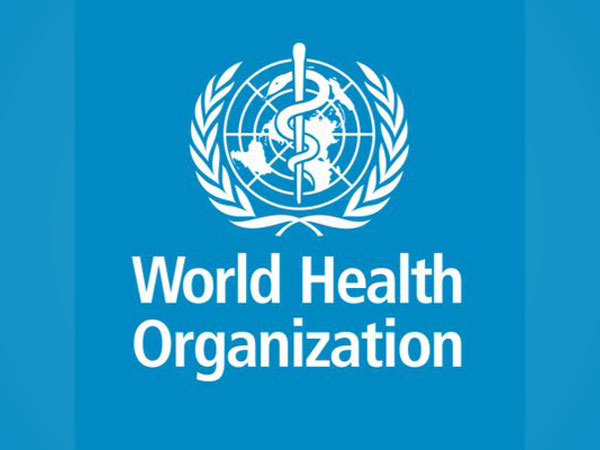Health News Roundup: Italy eases anti-COVID measures for travellers from China; WHO maintains highest alert over COVID, but sees hope ahead and more
Chief Executive Albert Bourla said that 2023 should be a "transition year" for Pfizer's COVID products, before potentially returning to growth in 2024. Factbox-What ending the U.S. COVID health emergency means for your pocket The U.S. government on May 11 will end the COVID-19 Public Health Emergency (PHE) that allowed millions of Americans to receive vaccines, tests, and treatments at no cost during the pandemic.

Following is a summary of current health news briefs.
Italy eases anti-COVID measures for travellers from China
Italy will loosen its anti-COVID controls for travellers arriving from China, making swabs random rather than mandatory at its airports, a document seen by Reuters on Tuesday showed. Under a new order signed by Health Minister Orazio Schillaci, Italy will require those flying from China to test negative within 48 hours of departure and may carry out additional swabs "on a random basis" upon arrival at the airport.
WHO maintains highest alert over COVID, but sees hope ahead
The World Health Organization (WHO) said on Monday that COVID-19 continues to constitute a public health emergency of international concern, its highest form of alert. The pandemic was likely in a "transition point" that continues to need careful management to "mitigate the potential negative consequences", the agency added in a statement.
Canadian province tries decriminalizing drugs to fight overdose crisis
The western Canadian province of British Columbia on Tuesday began a three-year pilot program to stop prosecuting people for carrying small amounts of heroin, meth, ecstasy, or crack cocaine, as part of an effort to fight a drug overdose crisis. B.C. accounts for about a third of the 32,000 deaths due to overdose and trafficking nationally since 2016, according to official data. The province declared drug overdose a public health emergency that year.
S.Korea considers early easing of COVID visa curbs on travellers from China -Yonhap
South Korea's prime minister suggested on Tuesday that COVID-19 visa curbs on travellers from China could be lifted earlier than scheduled if infections eased in the latter, as the travel and tourism industries hope for a rebound in visitor numbers. Prime Minister Han Duck-soo said Seoul could consider lifting the limit on short-term visas for such travellers before the end of February if China's tally of COVID infections proved manageable, the Yonhap news agency said.
AbbVie's Humira gets a U.S. rival, but costs could stay high
U.S. patients will finally get access to cheaper versions of AbbVie Inc’s blockbuster arthritis drug Humira this year, but the cost savings are expected to be limited. Rival drugmaker Amgen Inc on Tuesday launched Amjevita, the first biosimilar version of AbbVie’s 20-year-old drug, with two tiers of pricing. One sets a 5% discount to Humira’s monthly price of $6,922. The other will be about half price but may not be widely available.
U.S. food safety regulator announces shakeup after infant formula crisis
The U.S. Food and Drug Administration (FDA) said on Tuesday it will restructure its food program that was slammed last year for responding too slowly to an outbreak of illness among infants who consumed formula from an Abbott Laboratories production plant. In response to recommendations made by an outside group following the crisis, the FDA will establish a Human Foods Program led by a deputy commissioner, uniting its Center for Food Safety and Applied Nutrition, food policy office, and certain functions of its regulatory affairs office, agency head Robert M. Califf announced.
Americas rights body calls for stronger reproductive protections
The Inter-American Commission on Human Rights (IACHR) on Wednesday called for countries in the Americas to reinforce protections for women and girls seeking abortions, after observing measures that "go backwards" last year. "Both material and formal measures were observed that go backwards in the guarantee of reproductive rights free of all forms of violence and discrimination," the IACHR said in a statement.
U.S. to end COVID-19 emergency declarations on May 11
President Joe Biden's administration on Monday said it will end COVID-19 emergency declarations on May 11, nearly three years after the United States imposed sweeping pandemic measures to curb the spread of the illness. The COVID-19 national emergency and public health emergency (PHE) were put in place in 2020 by then-President Donald Trump. Biden has repeatedly extended the measures, which allow millions of Americans to receive free tests, vaccines and treatments.
Pfizer sees steep 2023 fall in COVID sales, aims to bolster pipeline
Pfizer Inc on Tuesday forecast a bigger-than-expected drop in sales of its COVID-19 vaccine and treatment for 2023, intensifying investor concerns over demand for the products as governments cut orders and work through inventories. Chief Executive Albert Bourla said that 2023 should be a "transition year" for Pfizer's COVID products, before potentially returning to growth in 2024.
Factbox-What ending the U.S. COVID health emergency means for your pocket
The U.S. government on May 11 will end the COVID-19 Public Health Emergency (PHE) that allowed millions of Americans to receive vaccines, tests, and treatments at no cost during the pandemic. As the government hands off to commercial channels, including private insurance and government health plans, most Americans, even those who have health insurance, should expect some out-of-pocket costs for those products. Here is who will pay for what and when:










